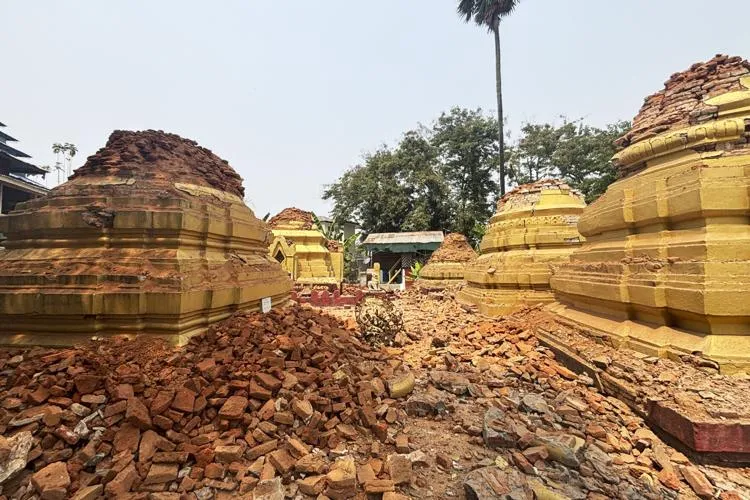Myanmar in Crisis: What You Need to Know About the Latest Developments
Myanmar, a nation once celebrated for its rich cultural heritage and democratic aspirations, is currently engulfed in a profound crisis. Since the military coup in February 2021, the country has experienced a dramatic shift from democracy to authoritarian rule, leading to widespread unrest, human rights abuses, and humanitarian challenges. As the situation evolves, it is crucial to understand the complexities of Myanmar’s current state.
In February 2021, the military, known as the Tatmadaw, overthrew the democratically elected government led by Aung San Suu Kyi. This coup triggered mass protests and a civil disobedience movement, with citizens demanding the restoration of democracy. The junta’s response has been brutal, marked by mass killings, arbitrary arrests, and torture of dissenters. According to the United Nations, the military’s actions have resulted in thousands of deaths and widespread displacement.
The humanitarian situation in Myanmar is further exacerbated by a “polycrisis,” characterized by economic collapse, escalating conflict, and severe humanitarian challenges. The economy has been mismanaged under military rule, leading to hyperinflation and a significant decline in living standards for the general population. Reports indicate that millions are now in desperate need of assistance, with a significant increase in poverty and displacement.
In addition to the ongoing conflict, Myanmar continues to grapple with the Rohingya crisis. Since 2017, hundreds of thousands of Rohingya Muslims have fled to Bangladesh due to a violent crackdown by the military, which has been accused of committing ethnic cleansing. The situation for Rohingya refugees remains precarious, with ongoing restrictions on their movement and limited access to education and employment opportunities. As one Rohingya refugee stated, “We just want to live in peace and have a chance to rebuild our lives.”
Climate disasters, including cyclones and floods, have further complicated the humanitarian response, impacting food security and displacing communities. The military junta has implemented severe restrictions on freedom of speech and assembly, leading to a crackdown on dissent. Journalists and activists face arrest and violence, stifling the flow of information and hindering efforts to address the crisis.
International aid has been significantly hampered by bureaucratic obstacles and violence against aid workers. As a result, the humanitarian response has been severely underfunded, with only a fraction of the required aid reaching those in need. The World Food Programme warns that malnutrition and health crises are on the rise as the situation deteriorates.
In a recent development, the U.S. government has frozen aid to Myanmar, further straining the already dire humanitarian situation. Activists and organizations are urging the international community to increase awareness and support for Myanmar’s crisis, emphasizing the need for humanitarian aid and political solutions. “We cannot turn a blind eye to the suffering in Myanmar,” said a spokesperson for a leading humanitarian organization. “The world must act to provide the support that is desperately needed.”
The international community has condemned the military’s actions, calling for accountability and justice for the Rohingya and other affected populations. The United Nations has called for a global arms embargo and targeted sanctions against military leaders and their businesses. However, enforcement remains inconsistent, and progress has been slow.
As the conflict continues, the junta faces increasing resistance from pro-democracy armed groups, leading to intensified violence and civilian casualties. The plight of women and children has worsened, with reports of increased gender-based violence and exploitation amid the ongoing crisis. The future of Myanmar remains uncertain, with calls for a return to democratic governance and the protection of human rights amidst ongoing violence and instability.
In conclusion, Myanmar’s crisis is a complex and multifaceted issue that requires urgent attention from the international community. The ongoing violence, humanitarian challenges, and political repression demand a coordinated response to support the people of Myanmar. As the situation unfolds, it is essential to remain informed and engaged, advocating for justice, accountability, and a peaceful resolution to the crisis. The world must not forget Myanmar, for its people deserve a chance to rebuild their lives in peace and dignity.






Leave a Comment